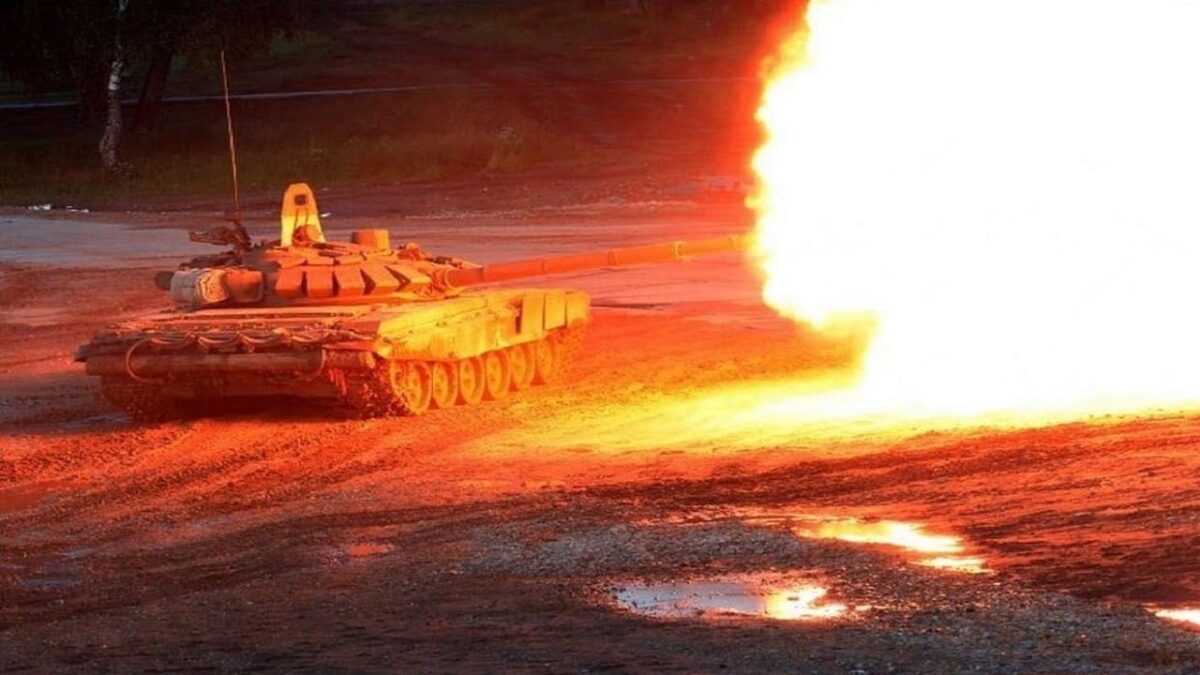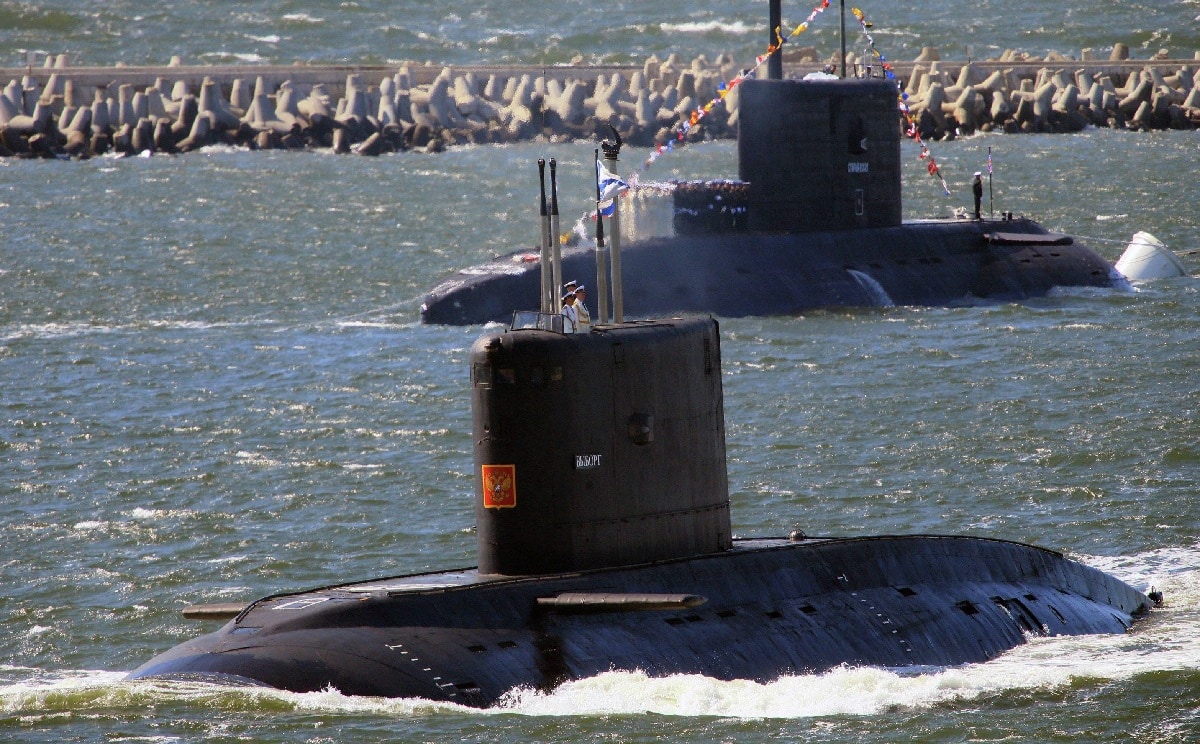Over the weekend Ukrainian forces appear to have launched a reasonably successful attack on Russian naval forces at Sevastopol. How successful remains unclear, but reportedly a frigate and a minesweeper took some damage. (The frigate, Admiral Makarov, became the flagship of the Black Sea Fleet upon the sinking of the cruiser Moskva).

Russian T-90 tank. Image Credit: Creative Commons.
The attacks were undertaken by unmanned surface vehicles, or USVs, and unmanned aerial vehicles, or UAVs. Video taken during the attack has been yet another propaganda boon for Kyiv. Such successes are critical to maintaining support for the war at home and across the international coalition that currently backs Ukraine.
The Importance of Sevastopol
The attack appears to have had only limited military effects, but it is important in strategic terms, because Russia can no longer count on the security of its anchorage at Sevastopol. The growing reach of Ukrainian weapons puts the viability of the base in great question. That is a problem for Russia, because the maintenance of a fleet anchorage at Sevastopol is crucial to Moscow’s aims in this conflict. Without Sevastopol, Russia would struggle to maintain a significant naval force in the Black Sea, as other available ports lack the natural and man-made facilities necessary to keep the fleet at readiness.
Russia lost its major shipyards in the region when Ukraine gained independence in 1991, and as a consequence of Moscow’s estrangement from Kyiv since 2014. Indeed, concern that Kyiv might abrogate or at least fail to renew the Russian lease over Sevastopol helped tip the balance of Russian decision-making towards the seizure of Crimea in 2014. The neutralization of Sevastopol would affect Russia’s ability to project power into the Mediterranean and beyond.
Heralding a New Age
This is not the first time Ukraine has attacked Russian ships at rest. In March, Ukrainian ballistic missiles sank the landing ship Saratov at the port of Berdiansk, damaging two other landing ships in the process. Moreover, Ukraine’s access to Western anti-ship missiles has already made the Black Sea inhospitable for Russian ships. Russia can no longer contemplate an amphibious assault against Ukraine’s coastline, and it cannot plausibly threaten Ukrainian grain shipments with surface warships. For the most part, Russian ships have been relegated to acting as long-range shore artillery.
We should note the attack was not a complete success. Russian defenses appear to have destroyed some of the drones before they could reach their targets. Nevertheless, the attack should alarm naval authorities around the world, much in the same way that the British attack on Taranto in November 1940 should have provided a warning about the lethal strike capability of carrier aviation. Ukraine relied on what seem to be relatively inexpensive drones, certainly in terms of manpower and probably in terms of equipment. The success of such an attack depends on the delivery system (how far out did the Ukrainians launch the USVs), the ability of the drones to maintain contact with their controllers, and the extent of damage inflicted by the warheads. All of these represent pressure points in the kill chain that a defender could take advantage of in the future. We don’t yet know many of the details, and we may not know them until well after the end of the war.
Russia’s Hold on the Black Sea Slips
This attack was certainly no Pearl Harbor, and it wasn’t even Taranto – where the British sank three Italian battleships – but it does offer some lessons for both attackers and defenders. In the future, attackers will use long-range motherships – most likely submarines but possibly also merchant vessels – to release UAVs, USVs, and unmanned undersea vehicles as close to the target as possible. Penetrating the physical, kinetic, and electronic defenses of critical port facilities is possible, but it is not easy, especially against a capable opponent who expects the attack.
With respect to the future of this conflict, the attack merely highlights how poorly the war at sea has gone for Russia, which began the conflict with huge advantages. Although Moscow announced that it would leave the grain transport deal it struck with Ukraine earlier in the war, it is not obvious that Russia can effectively interdict such shipments without resorting to submarine or long-range cruise missile attacks. Either of those would prove immensely damaging on the international stage, especially when they hit grain shipments destined for developing countries. In the longer term, Russia’s centuries-long grip on the Black Sea may well be slipping away, with potentially huge implications for Russia’s role on the international stage.
Dr. Robert Farley has taught security and diplomacy courses at the Patterson School since 2005. He received his BS from the University of Oregon in 1997, and his Ph. D. from the University of Washington in 2004. Dr. Farley is the author of Grounded: The Case for Abolishing the United States Air Force (University Press of Kentucky, 2014), the Battleship Book (Wildside, 2016), and Patents for Power: Intellectual Property Law and the Diffusion of Military Technology (University of Chicago, 2020). He has contributed extensively to a number of journals and magazines, including the National Interest, the Diplomat: APAC, World Politics Review, and the American Prospect. Dr. Farley is also a founder and senior editor of Lawyers, Guns and Money.

